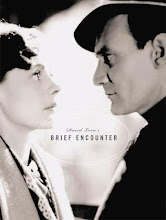When I chanced on the movie, Bergman’s war movie with two musicians, I was curious about how Bergman could transfer the charms of his mystic inner world to the cut-open world of the war. Especially, when his usual characters, in reality would adorn only the peripheral world in such a movie and, as the war is essentially about soldiers. Perhaps not. But the staple food of all horrifying images and incidents occur, but are supposed to reflect on the man and woman in the movie. However, the tangent directs you not toward the psychological profiles of Jan and Eva; rather explore the transformative potential of the man and woman under duress. So then, is war a scenic backdrop in the film? So does the auteur stay within his regular themes and explore only the individual? This constant personalism…individualism, do they suggest a deliberate purported unimportance to the societal and the social? A reductio ad absurdum, I would probably say tomorrow.
The film, unlike other Bergman films, rarely focuses on faces. It moves through a story where the protagonists are part of the war, not the other way round. Differentiation of personalities is portrayed as not effected because of the war: Jan is meek and nervous, while Eva is of a stronger constitution. However the metamorphosis of Jan in to the hardened survivor is problematic because of its premise. War, being the grand scene obviously points to herself as the cause of this volte-face. But what about the interlude between Eva and the mayor that he witnesses and which makes him almost hysterical? Or the consequent refusal to give the money to save the mayor? And of course, the relish almost, with which he shoots at the mayor when ordered to? It would be simplistic to pin this all to the war, and ignore the undercurrents of the deteriorating relationships and, also the suspected infidelity. Which brings us to the question- isn’t this film about the man and woman?
Eva is tired of Jan constantly, reminding me much of Moravia’s Contempt, but Eva’s feelings for Jan doesn’t border on contempt, hatred or irritation; nothing perpetual. She is acutely aware of Jan’s shortcomings and flaws but through out the movie, we sense an underlying bond which ties [restrains?] her to Jan. That is why she wants to have a child with him, and that is why she follows him to the sea in the end. There are many symbolic scenes where she is ready to proffer her self for love, but Jan is too self absorbed and egotistical to notice. There is a brilliant scene when Jan breaks away from an intimate moment by saying that his leg hurts.
Contrast the scenic [sic] images of the war with the occasional cutting to Eva’s face. Placing the individual in the matrix and watching her. Eva is the hero of the movie to me, insofar, that I see the film through her eyes, surprise and resignation curiously mixed to Jan’s metamorphosis. Thus I also recognize that, this movie is trying to explore Jan and Eva, but the war is an important part of the mis-en-scene. It underpins the plot with its essence or the matrix, albeit this is not its story.
Yet, as the film progresses we see Jan and Eva’s lives interweaving more and more with the war and being affected by it. This is when we are forced to confront the actual meaning. It is the duplicity of its ontology that the image appears to be that of the persona and not of the war. The immediate cause of rupture in the relationship is perhaps, the mayor, but what of the essentially ruptured relationships between them? What brought that about? Isn’t the curious resignation or accommodating a changed Jan because the already ruptured relationships had made them complete strangers of each other? You are surprised when someone you know changes, not otherwise.
Thus the viewer is subjected to the obvious effects of the war serving the backdrop, but it is what we cannot see that propels the plot of Jan and Eva forward. Calling it a psychological understanding would be crude; because what is presented is unknown to the character and the audience.
Bergman places such import on the ending in his movies. They hold the key, the resolution, the denouement, the epilogue or the conclusion. I cannot but help draw a parallel between the danse macabre in The seventh seal, and the travelers in the boat in the open sea. Both are after the end, a passage to the netherworld for the former, and the relation of the fates for the latter. After the end; can also signify the reflections on what happened, and for me, these reflections hold the purpose of plot to be read and re-read of course. The end, for Skammen, is underlined prematurely, through regular cutting to the open sky and the dwindling resources.
One of the most powerful scenes is when they come across all these bodies floating on the water, and they have to be poked at to make way for the living, so to speak. The film ends with Eva narrating a dream: ‘….Then I came to a high wall and it was overgrown with roses. And then came an airplane and set the roses on fire but it wasn’t too awful since it was so beautiful. I watched the reflections in the water and saw how the roses burned. And I had a little child in my arms. It was our daughter. She clung to me…I felt her lips touching my cheek. And the whole time I knew that I should remember something…something someone had said, but I had forgotten what it was.’ Thus, reflecting on the irreparable damages and the changes, having confronted the scars and the wounds, having forgotten what it was like before, nostalgia and happiness, the film ends.
Monday, June 7
Subscribe to:
Post Comments (Atom)





No comments:
Post a Comment